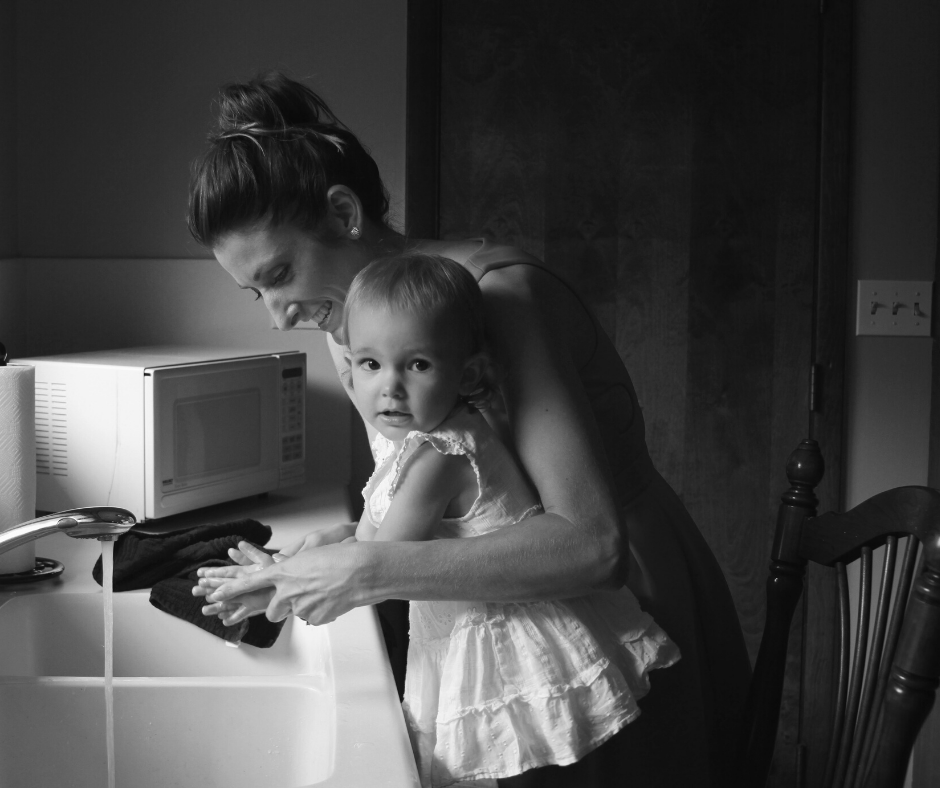 Across North Carolina, women are feeling the pinch of the Coronavirus pandemic in a variety of ways. As small business owners, as employees, as caretakers and mothers – women are having to modify and be nimble in ways they never expected.
Across North Carolina, women are feeling the pinch of the Coronavirus pandemic in a variety of ways. As small business owners, as employees, as caretakers and mothers – women are having to modify and be nimble in ways they never expected.
According to the Center for Global Development, they predict the COVID-19 outbreak will disproportionately impact women, in a recent publication, adding that “gender inequality can come into even starker focus in the context of health emergencies.”
While research indicates that women are emerging as less likely than men to be infected by the virus, they are being impacted by indirect effects, largely because of established roles that began long before the outbreak.
The research underscores what thousands of us already know and live in North Carolina. That includes Arden resident, Amanda Jones, who works in nutrition with Henderson County Schools and is married to an emergency room doctor.
“I feel like moms in general are always going to have high demand and this is making it more visual,” said Jones.
Because of her husband’s role on the front lines of the Pandemic, Jones is tasked with managing the home schooling of their three school-aged children, and the entertainment of their toddler.
“At this point I feel like I’m a survival mom – we’re not creating relationships at this point – we’re surviving. It’s hard not to be testy,” she confessed.
Jones’ job has transitioned her to work from home, which helps, but her responsibilities have ramped up in the crisis as the country works to deliver nutritious meals to the thousands of children in need.
While some like the Jones family have jobs and skill sets that will remain in high demand during the crisis, women small business owners are feeling the pinch.
Durham resident, Rebekah Miel owns Miel Design Studio. At this point, she’s transitioning her role with her current clients to being a coach of sorts, helping them transition their jobs to work from home – something she was adept at before the crisis.
“I’m fairly lucky in that because I’ve been working remotely for so long, I can work with my clients to figure out how to get their businesses remote,” she said.
But Miel adds that things are changing every day.
“It’s sort of day by day about whether or not I can continue to work with my clients. I can continue for 2 months as is but then I’ll have to reevaluate,” she said.
Her experience underscores human experience with other disasters before the Pandemic.
There is prior research on other crises that “found that men’s labor force participation remained largely unchanged during economic crises, whereas women’s labor force participation rose in the poorest households and fell in richer households.”
On top of owning a small business, Miel has 7 year old twins she is home schooling, and her husband has a health history that places him in the high risk category for COVID-19.
“It’s been a juggling act of trying to figure out what needs to be done most quickly, and it’s usually everything at once. Like most people I haven’t been sleeping so I’ve just been working around the clock,” she said.
Charu Kumarhia, who lives in Cornelius, finds herself in the throes of homeschooling her young children, just as she was about to re-launch her career after being a stay at home mom for several years.
“Their demands don’t stop. It’s hard to keep the balls in the air. My job – like most reporters – is money comes in and sometimes it doesn’t,” she shared. “We really rely on my husband’s job – and because of that the burden is falling to me to keep them up academically.”
Kumarhia launched a podcast, The Story With Charu, late last year, as well as her career as a freelance journalist and on-air personality, after working as a full time TV reporter before she had children.
“Being a reporter – I’m hyper organized – but this is a challenge for anybody. I’m trying to tell myself that I’m doing what I can,” she said.
A frustration shared by Kumarhia and Jones, is that working out is increasingly difficult with gyms closed, and many outdoor parks are closed.
“I’m accustomed to working out every day, and that’s probably not going to happen,” said Kumarhia.
“All of the places we go to relieve stress are closed like gyms. You don’t get an activity without pushing a baby in a stroller,” said Jones.
It’s no secret that exercise improves mental health, and that’s underscored by multiple bodies of research that show it’s proven to reduce anxiety and depression.
Experts suggest going for a walk or working out inside the home. There are free workouts available on sites like Youtube, including a series from Orange Theory that are free. Many local gyms and yoga studios are offering remote classes through live streaming.
The Pandemic has placed many women doing something they never considered, home schooling. It’s something Robina Walker of Todd was already familiar with.
She homeschools her six children, ranging in age from four to 13, but this is even a new situation for her she explains.
“Active homeschooling is not the same as isolationist home schooling.”
With her older children, Walker, like many in the homeschool community, utilizes group classes to teach more difficult subjects. It’s also known as hybrid homeschooling.
Those in-person classes are not available and neither is the caregiver she would use to watch the younger children as she offered instruction to the older ones. She also said there was initially a shortage of enough computers and tablets to support the type of learning they’re doing, and not enough separate rooms in the house for older children to do video chats for lessons without their younger siblings getting involved.
“It’s tricky now. Everyone needs a computer, we’re trying to find space and technology, and the toddler is running around screaming in the background,” she said.
She did offer some advice for women who are new to the homeschooling world.
“The only thing you can do is recognize is that schools do so much – this is a great time – to go to a one room schoolhouse situation. It’s about your reading, writing, and arithmetic. Get rid of fluff and encourage reading more,” she said.
While all women interviewed for this article find this time challenging, some do see some silver linings. Cassie Murphy of Durham is a mother to a 3 year old and a 5 month old. She works in customer service for a company, taking consumer questions via phone and email. Up until recently she and her coworkers were required to come to an office.
Now she’s hopeful the company will consider letting them continue to work from home once risks from the Coronavirus subside.
“They (her employer) see us being able to work from home. We’re still making progress, everyone is doing their part,” she said.
She and her husband continue to work from home, while their children are able to go to daycare, for now. Her frustration now is the inconsistent “stay at home” or “shelter in place” measures being adopted in some counties and municipalities, telling me she wishes it was just a statewide order.
Miel agreed.
“I have personally been really frustrated by not asking people to shelter in place” she told me.
All people we interviewed say the Pandemic is highlighting gaps in the American system that supports women and families. Now those gaps are chasms.
“We live in a country where there are no alternative options for child care, there’s no support for child care,” said Miel.
On top of that, Miel said, is the people not going to the doctor because they can’t afford it, and more troubling people are losing health insurance as a result of job loss.
The consensus among those interviewed, and other groups like MomsRising, is that the best parts of this abrupt shift in how we work, educate our children and go about our daily lives may stick after the Pandemic. We now see why access to child care, health care and other supports seen in other western countries are important.
*This article was written before NC Governor Cooper announced a statewide stay at home order starting Monday, March 30th at 5:00 pm.*
 Stephanie Carson is a corporate video producer and journalist in North Carolina. In her spare time, she helps her husband with his hard cidery and serves as a “Ski Mom” to her two daughters who race competitively.
Stephanie Carson is a corporate video producer and journalist in North Carolina. In her spare time, she helps her husband with his hard cidery and serves as a “Ski Mom” to her two daughters who race competitively.

There are no comments
Add yours